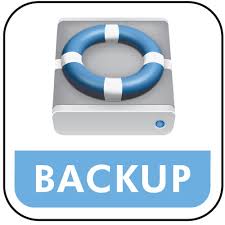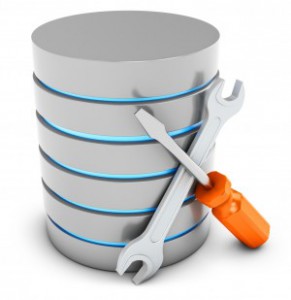What’s it worth to have peace of mind; to know that if disaster strikes and your server crashes, or worse yet, dies altogether, that your mission critical data is protected? There is always that chance of power failures, hanging workstations, data corruption and disaster striking. It may not happen very often, but it usually will happen at the most in opportune times (when is a good time?). Taking some simple steps will make the effect of such crises minimal…Reduce your risks!
Risk of Not Doing Regular Database Backups
 You would think that having expensive, redundant drives and tape or cloud backup systems would be enough for an effective data recovery solution. But, restoring from these media is not always quick and easy. You most likely rely on someone else, maybe an outside network company, to restore the data. That could take time. And if they can’t recover it all, you can end up having to re-key data. Depending on how often the backups were performed, it could be month’s worth of pain.
You would think that having expensive, redundant drives and tape or cloud backup systems would be enough for an effective data recovery solution. But, restoring from these media is not always quick and easy. You most likely rely on someone else, maybe an outside network company, to restore the data. That could take time. And if they can’t recover it all, you can end up having to re-key data. Depending on how often the backups were performed, it could be month’s worth of pain.
Most applications have internal backup procedures. You should use them regularly. We have saved several of our clients many hours of pain and thousands of dollars just by quickly accessing recent data backups; based on our recommended schedule. We are often able to piece together data from one backup with that of a previously corrupt database to bring you back to whole or near whole. It’s important to have a total strategy for disaster recovery and there are some simple, inexpensive things you can do to add a level of security. And remember…backup the backups! Do you believe in insurance?
Risk of Not Having Regular Maintenance Procedures
 Wouldn’t you rather know you have a problem before the point of no return? Sometimes data corruption can be buried in a database for months and go undetected. A safe practice of checking data for possible corruption, so you can correct it on your terms and with more option available to you, makes sense. Database utilities can sometimes identify problems you don’t know you have. Let us help you identify some simple steps to eliminate these unknowns.
Wouldn’t you rather know you have a problem before the point of no return? Sometimes data corruption can be buried in a database for months and go undetected. A safe practice of checking data for possible corruption, so you can correct it on your terms and with more option available to you, makes sense. Database utilities can sometimes identify problems you don’t know you have. Let us help you identify some simple steps to eliminate these unknowns.
Personnel Risks
How often have you had to wait for someone to come back from vacation before you could accomplish a mission critical task? Have you ever been in the situation where your billing person or bookkeeper left without giving you notice? By simply cross training your employees, especially those with specific knowledge, you can save much aggravation, time and money.
Policies and Procedures
Every organization has certain functions that they must perform. But, they all have different modes of operation. They all have different requirements, because the individuals running these companies are unique. As a further step to security, you should document your mission critical policies and procedures. Having a set of instructions to follow will be invaluable. If you’ve ever been stranded by an employee, and have no clue how they performed certain tasks, you can relate!
How high is your threshold for pain? Let us help you with some simple steps to reduce your risk! CONTACT US
